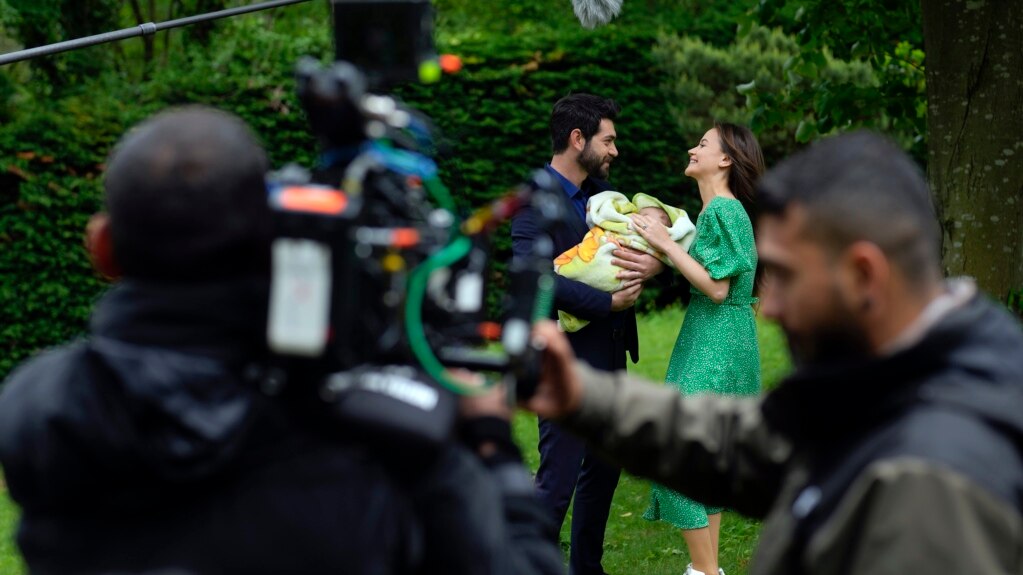Turkey has become a leading exporter of television shows in recent years.
Millions of people are watching Turkish TV dramas known as Dizi. Many of the shows involve the nation’s famous historical and cultural places.
Experts say the success of the television dramas has created a billion-dollar industry that continues to expand. Between 2020 and 2023, demand for Turkish TV series increased by 184 percent. That number comes from Los Angeles-based research company Parrot Analytics.
Izzet Pinto is chief of the Turkish media company Global Agency. “We reach over 400 million viewers every night around the world,” he said. Global Agency exports Turkish dramas to world markets. Pinto noted, “The soft power we create with Turkish dramas cannot be even compared to what could be done in politics.”
The Turkish drama Deli Yurek was the first to be exported. Turkey sent it to Kazakhstan in 2001. But it was the love story series called Gumus that brought fame to Turkish dizis. The story is about a traditional woman who must adapt to life in the city. Gumus grew hugely popular in the Middle East.
In 2006, viewers in Europe’s southeastern Balkans area enjoyed A Thousand and One Nights, a series based on Middle Eastern folktales. The stories were set in modern-day Istanbul. Turkish TV also produced the show Magnificent Century, a popular historical drama based on the life of Ottoman Sultan Suleyman the Magnificent.
Turkey was once an importer of Latin American TV dramas known as telenovelas. Now, it is exporting TV shows to Latin American countries. In 2018, Venezuelan President Nicolás Maduro visited the set of the Turkish drama Resurrection: Ertugrul.
Haley Uganadi founded a website for fans of Turkish TV series called Dizilah. About 1.5 million people from the United States, Canada, Greece, India and Pakistan visit her website monthly.
Uganadi said the popularity of the dramas comes from their subjects. She said they are about family, friendship and love and usually involve rich people in Istanbul or historical stories.
Uganadi said the shows offer “something for everyone,” and added, “I see reflections of my mom, myself and my siblings” in them.
Pinto of Global Agency agrees that Turkish dramas are right for everybody. “There is no nudity, no cursing or bad words, not much hate,” he said, “So, it becomes watchable for the family.”
As Turkey’s industry grows, it is expanding the themes of its series. For example, the series Red Roses explores issues affecting a family that is culturally Western and a fictional Islamic brotherhood.
During a recent period between filming, actor Ozcan Deniz told the Associated Press that diversification is important for industry growth.
He said, “Countries that were not able to transform (into) a different genre are now lagging behind in the export of series.” He added, “Turkey has now caught this momentum, but if it cannot diversify, if it cannot also tell different things, it will end somewhere.”
Resurrection: Ertugrul is an example of the growing success of Turkish series. Mehmet Bozdag is a producer and writer. He said the first show of the series had over 157 million views on the Urdu language YouTube channel of Turkish state broadcaster TRT. Another series, Foundation: Osman, was broadcast in over 110 countries.
I’m Mario Ritter, Jr.

